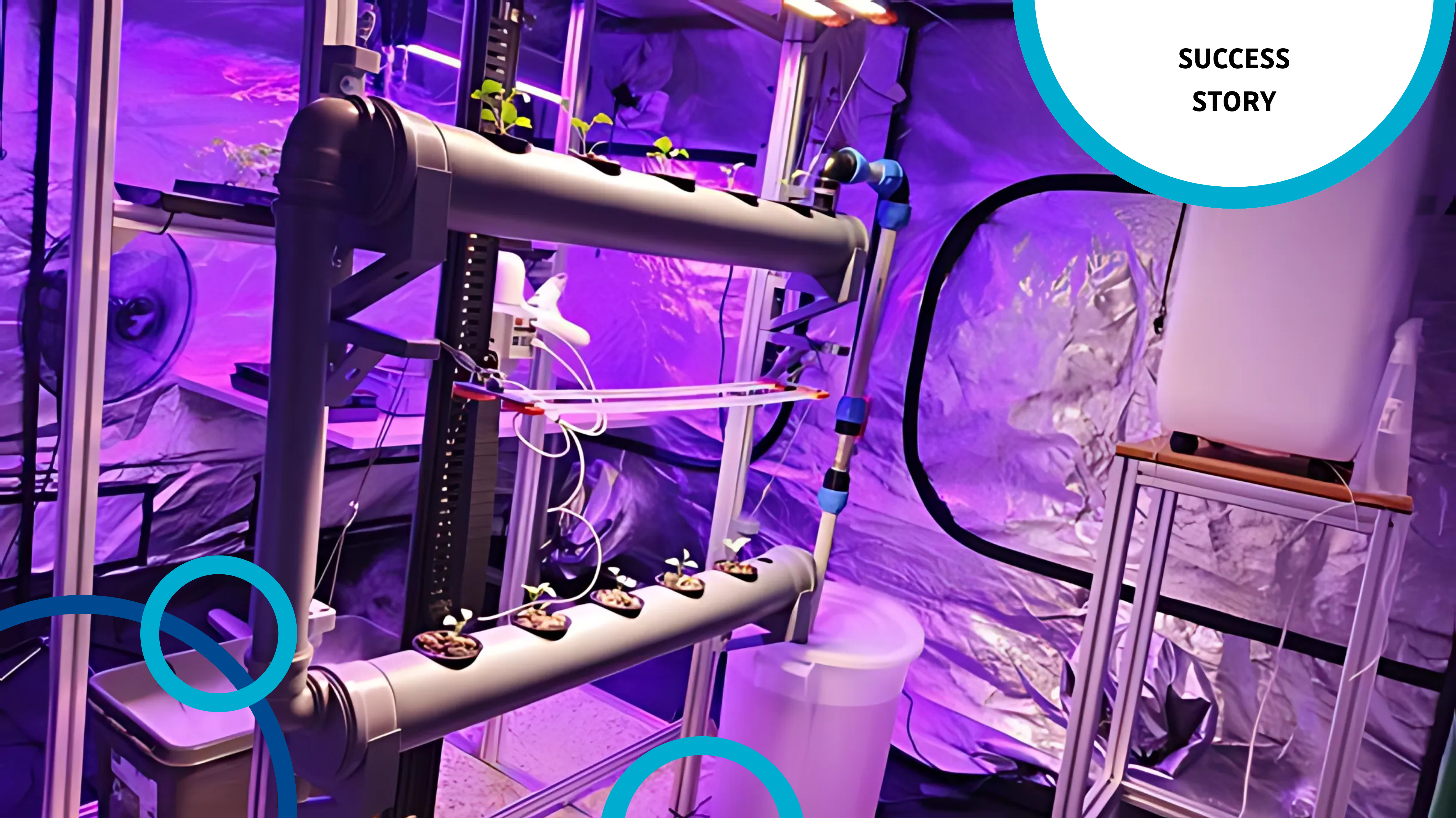IMAGE: Department of Agricultural, Food, and Environmental Engineering of AF MENDELU
Partner: SOHE s.r.o
Sector: research, glass industry
Researchers from the Faculty of Electrical Engineering and Computer Science at VSB-TUO, the Signal Lab team led by Radek Martinek, are involved in research that uses artificial intelligence to detect the causes of stress in plants. As part of the European Digital Innovation Hub Ostrava (EDIH Ostrava) project, Signal Lab experts have developed a unique robotic system for camera-based plant inspections in indoor growing conditions. Thanks to early diagnosis, it will be possible to adjust growing conditions more quickly and increase crop resistance.
They are also collaborating on the project with experts from the Department of Agricultural, Food, and Environmental Engineering at Mendel University in Brno. Tomáš Kubín from the Faculty of Mechanical Engineering, VSB-TUO, participated in designing and implementing the robot’s construction.
“Within the project, we successfully implemented a remote monitoring and sensing system for plants in indoor growing conditions, as requested by SOHE. We developed software and implemented hardware for plant monitoring, including analysis of available solutions, design, and construction of a growing tent with controlled lighting, ventilation, and irrigation. The solution also included the development of a climate monitoring system and the implementation of a camera system to enable remote monitoring. At the same time, we developed a mobile and desktop application to visualise the acquired data. The application includes the proposed architecture, API, and backup system and is fully integrated with the greenhouse control system. The result is a complex solution enabling effective monitoring of plant growth and optimising growing conditions,” explains Radek Martinek from the Faculty of Electrical Engineering and Computer Science at VSB-TUO.
The research focuses on different types of vegetables grown in the Faculty of AgriScience laboratory conditions at Mendel University. Researchers simulate the conditions that can cause abiotic stress to plants. “In the growing tents, we can measure and subsequently regulate the internal environmental conditions with high precision. This allows us to, for example, briefly increase the temperature to 30 °C, which puts the plant under stress. Another feature that significantly expands the possibilities for research is hydroponic cultivation, where we can mix the nutrient solution as needed. In this way, we can, for example, stress the plant with a lack of calcium, phosphorus, or nitrogen,” says research leader Vlastimil Slaný from the Department of Agricultural, Food, and Environmental Engineering.
Researchers record the response of plants to stress conditions using various imaging technologies.
“We developed a robotic arm with a hyperspectral camera that can measure various parameters, monitor plants at several levels, and record even small changes caused by long-term stress,” says Zdeněk Slanina from the Faculty of Electrical Engineering and Computer Science at VSB-TUO.
Once the researchers collect enough image data, they will use it to train advanced neural networks. The artificial intelligence will compare the plant images with a large database and determine the cause of the stress. “Our goal is to create a digital twin of the plant, a virtual model that mimics its behaviour in real time. This will allow us to detect problems early and implement appropriate protective measures more quickly. We plan to use drones and satellite imagery in the field,” adds Zdeněk Slanina.
In the next phase of the research, the experts also want to focus on data collection in pest-infested plants and the development of a multisensory system for collecting not only image data.




